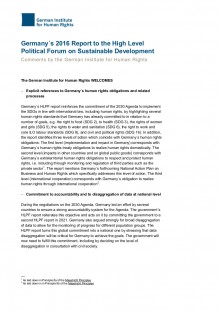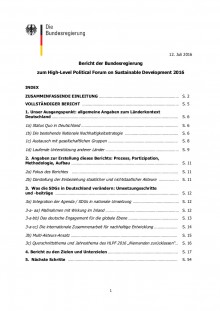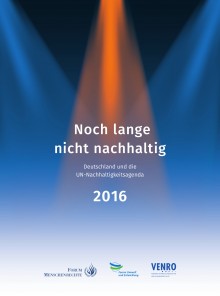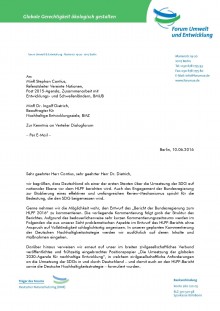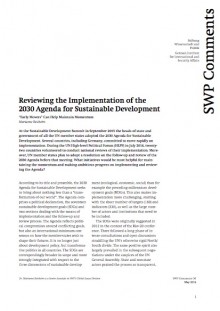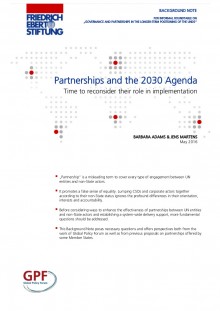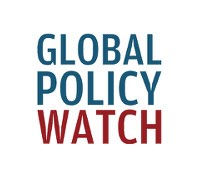The German Institute for Human Rights comments on Germany's 2016 Report to the High Level Political Forum on Sustainable Development.
The German Institute for Human Rights welcomes:
- Explicit references to Germany´s human rights obligations and related processes
- Commitment to accountability and to disaggregation of data at national level
The German Institute for Human Rights is concerned that
- National measures and indicators do not systematically build on national challenges
- The draft National Sustainability Strategy does not include details on civil society [...]

